Top Sustainable Jewelry Brands to Elevate Your Eco-Friendly Style
Looking for brands that offer an ethical jewelry collection featuring eco-friendly and ethically sourced pieces? In this guide, you’ll discover top sustainable jewelry brands committed to responsible practices, helping you make informed and conscious choices.
Key Takeaways
-
Sustainable jewelry brands are reshaping the industry by emphasizing eco-friendly practices, responsible sourcing, and ethical labor, responding to growing consumer demand for transparency.
-
Innovative materials like recycled metals, recycled gold, lab-grown diamonds, and Fairmined gold are key to reducing environmental impact while supporting local communities and ethical practices in production.
-
Technological advancements, such as 3D printing and blockchain, are revolutionizing the jewelry sector, enabling brands to minimize waste and enhance transparency, paving the way for a brighter future in sustainable jewelry.
What is Sustainable Jewelry?
Definition and Benefits of Sustainable Jewelry
Sustainable jewelry refers to pieces crafted with a commitment to environmentally friendly and socially responsible practices. This type of jewelry prioritizes the use of recycled materials, conflict-free diamonds, and responsibly sourced precious metals. By focusing on these elements, sustainable jewelry aims to minimize the environmental impact of the fashion industry while promoting ethical labor practices and supporting local communities.
The benefits of sustainable jewelry are manifold. Firstly, it significantly reduces waste and conserves natural resources by repurposing existing materials. This approach helps to mitigate the environmental degradation typically associated with traditional mining and manufacturing processes. Secondly, sustainable jewelry supports fair labor practices, ensuring that workers receive a living wage and operate in safe working conditions. This ethical approach fosters a more equitable industry and helps to uplift communities involved in the production process.
Moreover, sustainable jewelry promotes transparency and accountability within the supply chain. By prioritizing ethical sourcing and production methods, brands can reduce the risk of human rights abuses and ensure that their products are made with integrity. This transparency not only builds consumer trust but also encourages other brands to adopt similar practices, driving positive change across the fashion industry.
In summary, sustainable jewelry offers a way to enjoy beautiful, high-quality pieces while making a positive impact on the environment and society. By choosing sustainable options, consumers can support a more ethical and eco-friendly jewelry industry.
The Rise of Sustainable Jewelry Brands
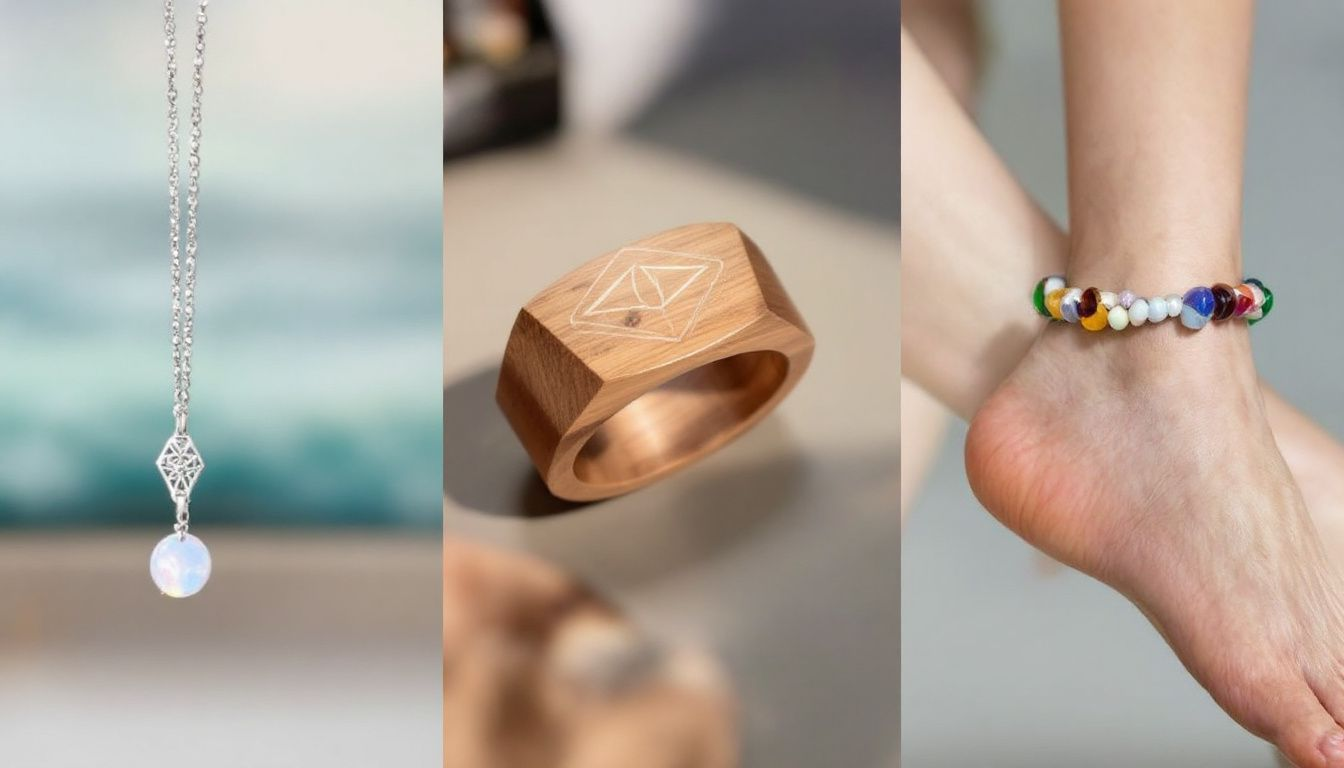
The traditional jewelry industry faces significant challenges, from complex supply chains to environmental degradation and unethical labor practices. However, there’s a silver lining. A growing number of consumers are prioritizing jewelry that utilizes ethically sourced materials, paving the way for a new era in the industry. Sustainable jewelry brands are emerging as a significant force, emphasizing eco-friendly practices and reshaping the jewelry landscape.
These brands are not just a trend; they represent a shift towards responsible consumption. Integrating sustainable practices into their production processes helps minimize the ecological footprint associated with traditional gemstone and metal extraction. This movement towards sustainable jewelry is not only beneficial for the environment but also sets a new standard for the fine jewelry and fashion jewelry sectors. Additionally, sustainable jewelry brands offer pieces suitable for everyday wear, combining practicality with style.
Eco-Friendly Practices in Jewelry Making
Eco-friendly practices in jewelry making are transforming the industry. Many jewelry brands are now committed to using recycled materials to minimize environmental impact. As consumers become more eco-conscious, there is a growing preference for jewelry made from recycled and biodegradable materials. This shift not only supports sustainability but also fosters ethical labor standards in the jewelry sector.
Recycled gold is a key element in sustainable jewelry production, with brands like Catbird, Mejuri, and Aurate emphasizing its use to appeal to environmentally conscious consumers who value ethical practices in their purchases.
Recycled metals, for instance, are increasingly utilized in jewelry to reduce the need for new mining. Many sustainable jewelry brands use recycled silver and reclaimed precious metals to minimize environmental disruption. Quazi Design, for example, transforms waste materials into jewelry, showcasing a commitment to sustainability and social responsibility. These practices are predicted to become standard within the jewelry industry by 2025.
In addition to using recycled materials, eco-friendly production methods are being adopted to reduce waste and pollution in jewelry making. Vrai, a prominent brand, produces lab-grown diamonds in a zero-emissions foundry powered entirely by hydropower. These efforts demonstrate that sustainable jewelry is not just a possibility but a thriving reality that benefits both the environment and consumers.
Impact on the Jewelry World
Sustainable jewelry brands are significantly influencing market trends by shifting consumer preferences towards responsible consumption. This shift is not only about embracing eco-friendly materials but also about demanding transparency and ethical practices from jewelry brands.
The impact of sustainable jewelry brands on the jewelry world is profound. They are setting new standards for what consumers expect from their fine jewelry and fashion jewelry collections. This movement is reshaping the industry, encouraging more brands to adopt sustainable practices and prioritize the use of recycled materials and responsibly sourced gemstones.
The future of the jewelry brand industry looks brighter and more sustainable, thanks to these pioneering brands.
Importance of Responsible Sourcing
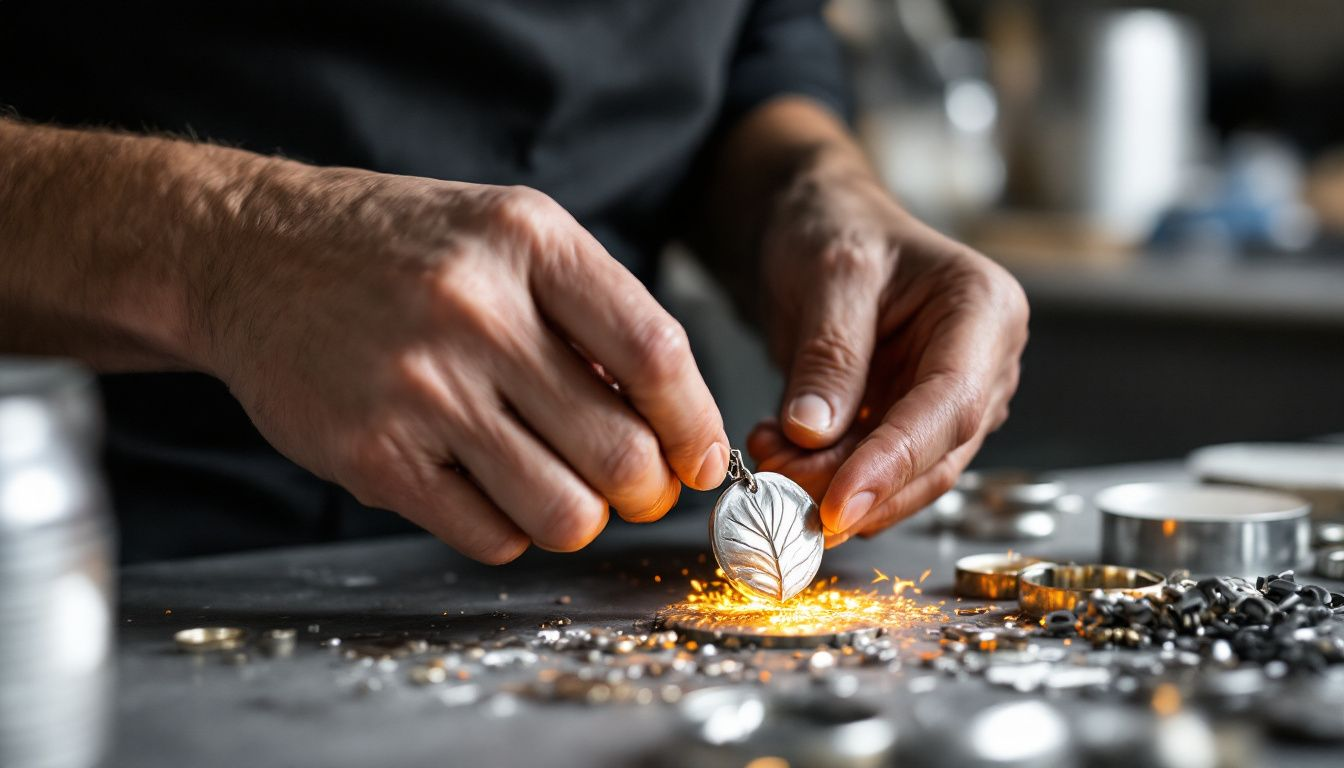
Responsible sourcing is the backbone of sustainable jewelry. By prioritizing ethical sourcing, sustainable jewelry brands ensure that their materials do not come from conflict zones and that fair labor practices are upheld. This not only supports sustainability but also helps avoid the negative environmental and social impacts associated with traditional mining practices. An ethical jewelry collection includes pieces crafted with high standards, including conflict-free materials and supporting local communities.
The demand for sustainable jewelry is projected to continue increasing as consumers become more conscious of environmental issues. This shift towards ethical sourcing aims to create transparency and accountability within the supply chain.
Identifying sustainable jewelry brands requires a focus on transparency regarding sourcing and ethical labor practices. Making informed choices supports brands that prioritize sustainability and contributes to a more ethical jewelry industry.
Supporting Local Communities
Ethical practices in sourcing not only ensure fair wages and better working conditions for the communities involved in jewelry production but also help preserve traditional crafting methods. Raven + Lily, for example, empowers female artisans by ensuring fair compensation and creating opportunities for community development. These practices contribute to the wellbeing of local communities and foster a sustainable jewelry ecosystem. Additionally, a jewelry business can play a crucial role in supporting local communities and creating a strong brand identity.
Fairmined gold is a great example of how responsible sourcing can benefit local communities. This certification ensures that gold is sourced from artisanal small-scale mining organizations that meet social and environmental standards. Choosing jewelry made from Fairmined gold supports ethical sourcing and helps improve the lives of miners and their communities.
Reducing Environmental Impact
Reducing the environmental impact of jewelry production is a key goal of sustainable jewelry brands. Using Fairmined gold ensures that the metal is mined under strict environmental and social standards. Lab-grown diamonds also play a significant role in minimizing environmental disruption, as they do not require extensive mining.
Blockchain technology is another innovative approach that enhances transparency in the jewelry supply chain. By enabling consumers to trace the origins of gemstones, blockchain ensures ethical sourcing and reduces the environmental impacts associated with traditional mining practices.
These efforts collectively contribute to a more sustainable and eco-friendly jewelry industry.
Ethical Jewelry Practices Driving Change
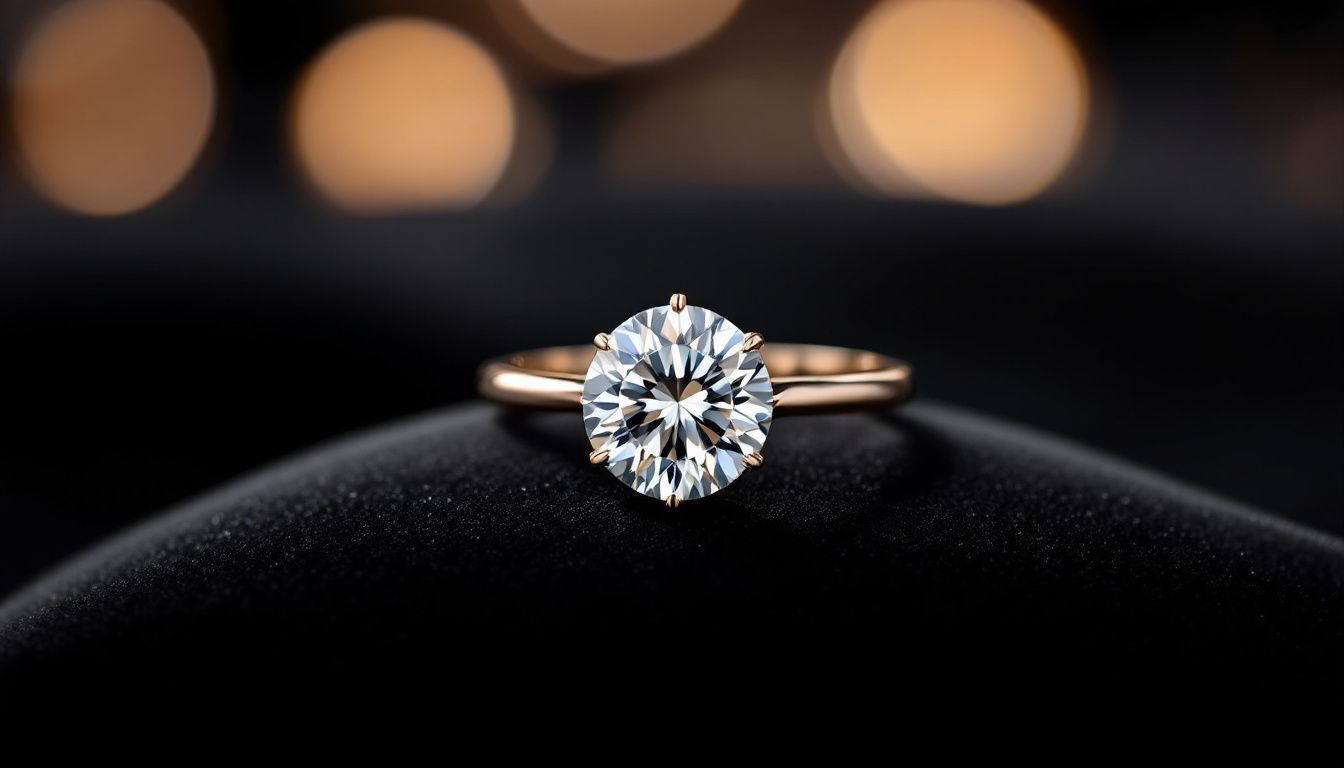
Ethical jewelry practices are at the heart of the sustainable jewelry movement. Responsible sourcing influences the quality of jewelry and reflects a brand’s commitment to sustainability. There is a growing demand for vegan jewelry options, which cater to consumers who are conscious of animal welfare alongside environmental concerns. Ethical sourcing is especially important for significant pieces like wedding rings.
Ensuring ethical practices involves asking retailers about their material sourcing and use of recycled materials in their products. Supporting brands that prioritize ethical sourcing and sustainable practices allows consumers to drive positive change in the jewelry industry.
Conflict-Free Diamonds
Conflict-free diamonds are sourced in a way that avoids funding armed conflicts and respects human rights. These diamonds are crucial for ensuring that jewelry does not contribute to violence and human rights abuses. The Responsible Jewellery Council certification is a key indicator of a jewelry brand’s commitment to responsible sourcing.
Opting for conflict-free diamonds supports ethical practices in the jewelry industry. Brands that adhere to the standards set by the Responsible Jewellery Council promote transparency and ethical sourcing, making them a trustworthy choice for conscious consumers.
Fairmined Gold and Recycled Metals
Fairmined gold is a certification for responsibly mined gold that meets environmental and social standards. FUTURA Jewelry, for example, uses 18kt certified Fairmined Ecological gold, ensuring ethical sourcing and environmental stewardship. Using recycled metals in jewelry making is another crucial element of sustainable practices, as it minimizes waste and reduces the demand for new mining.
The combination of Fairmined gold and recycled metals fosters a sustainable, ethical, and eco-friendly jewelry industry. By choosing jewelry made from these materials, consumers can support brands that are committed to sustainability and ethical sourcing.
Lab-Grown Diamonds: A Sustainable Choice
Lab-grown diamonds are becoming a popular choice in the sustainable jewelry sector. These diamonds offer a sustainable and ethical alternative to natural diamonds, providing a lesser environmental impact while maintaining aesthetic appeal. As the jewelry industry continues to embrace lab-created gemstones, consumers have more options for eco-friendly and ethically sourced jewelry.
The rise of lab-grown diamonds is a testament to the jewelry industry’s commitment to sustainability. Choosing lab-grown diamonds allows consumers to enjoy fine jewelry without the ethical and environmental concerns associated with traditional diamond mining.
Benefits of Lab-Grown Diamonds
Lab-grown diamonds are identical to natural diamonds in terms of chemical and physical properties, making them a perfect alternative for those seeking sustainable jewelry. These diamonds offer a range of benefits, including a lower environmental footprint and ethical sourcing.
Choosing lab-grown diamonds ensures that consumers can enjoy the beauty and brilliance of diamonds without contributing to the negative impacts of traditional diamond mining. This makes them an ideal choice for engagement rings and other fine jewelry pieces.
Popular Brands Offering Lab-Grown Diamonds
Several popular brands are leading the way in offering lab-grown diamonds. Ice Dazzle specializes in selling lab-created diamonds directly to consumers. They offer a range of ethical jewelry options, including engagement rings and eternity bands. Blue Nile is also known for providing high-quality lab-grown diamonds at competitive prices and includes services like free ring resizing.
These brands contribute to the sustainable jewelry movement by providing eco-friendly and ethically sourced options. By choosing lab-grown diamonds from these brands, consumers can support a more sustainable and ethical jewelry industry.
Featured Sustainable Jewelry Brands
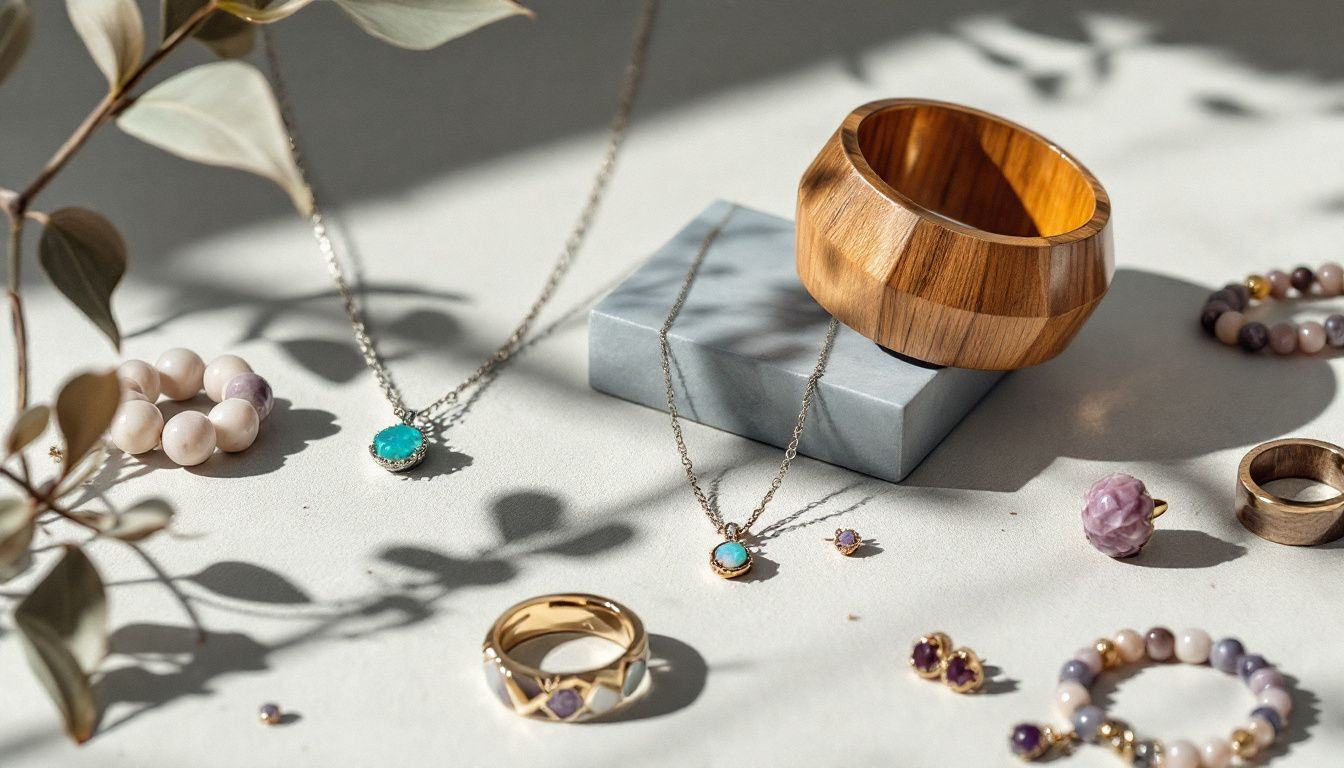
The world of sustainable jewelry is rich with brands dedicated to eco-friendly practices and unique designs. These brands are assessed for sustainability through a rigorous ratings system, ensuring they meet high standards of ethical sourcing and environmental stewardship. Choosing sustainable jewelry helps promote responsible sourcing and environmental stewardship.
We’ll explore some of the top sustainable jewelry brands that are making a difference. From Quazi Design’s use of waste materials to Raven + Lily’s empowerment of female artisans, these brands are setting new standards for the jewelry industry.
Quazi Design
Quazi Design is known for its exceptional quality and unique designs. Using waste newspaper and brass, Quazi Design creates one-of-a-kind jewelry pieces treated with varnish to enhance durability. The brand’s commitment to responsible design practices aims for social impact, making it a standout in the sustainable jewelry market.
Quazi Design’s innovative approach to using reclaimed materials showcases the possibilities of sustainable jewelry. Their unique designs are a testament to the creativity and social responsibility that define the brand.
Hailey Gerrits
Hailey Gerrits combines artistic designs with eco-friendly materials, focusing on recycled resources in her jewelry. Her commitment to sustainability and creativity makes her brand a favorite among eco-conscious consumers.
ARTICLE22
ARTICLE22 stands out for its use of recycled materials from Vietnam War bombs, plane parts, military hardware, and aluminum scraps to create unique jewelry. Through its initiatives, ARTICLE22 fosters artisan skills and contributes to community growth, making a positive impact in Laos.
The brand’s dedication to creating handcrafted jewelry with a mission to support community development is commendable. ARTICLE22’s unique pieces are not only beautiful but also carry a powerful message of peace and sustainability.
Raven + Lily
Raven + Lily promotes handmade jewelry by collaborating with local artisans, ensuring fair wages and creating opportunities for community development. This commitment to women’s empowerment is reflected in their business model and practices. Raven + Lily’s unique pieces are a testament to the brand’s dedication to ethical sourcing and social responsibility.
Opting for Raven + Lily means supporting a brand that values sustainability and empowers women artisans. The impact of these practices extends beyond beautiful jewelry, fostering a positive change in the communities involved.
Online Marketplaces for Sustainable Jewelry
Etsy: A Popular Online Marketplace for Sustainable Jewelry
Etsy has emerged as a leading online marketplace for sustainable jewelry, offering a diverse array of unique, handmade, and vintage pieces. Many of the jewelry items available on Etsy are crafted from recycled materials, conflict-free diamonds, and responsibly sourced precious metals. This platform provides a space for artisans and small businesses to showcase their ethical jewelry collections, making it easier for consumers to find and purchase eco-friendly jewelry.
Etsy’s commitment to sustainability is evident in its policies and practices. The platform encourages sellers to use eco-friendly packaging, reduce waste, and adopt sustainable practices in their production processes. Additionally, Etsy provides resources and tools to help sellers enhance their sustainability efforts and minimize their environmental impact.
When shopping for sustainable jewelry on Etsy, consumers can use specific keywords such as “recycled materials,” “conflict-free diamonds,” “responsibly sourced precious metals,” and “eco-friendly practices” to find relevant listings. Etsy also offers search filters for “sustainable” or “eco-friendly” products, making it easier to identify jewelry that aligns with ethical and environmental standards.
By choosing to shop on Etsy, consumers can support small businesses and artisans who prioritize sustainability. This not only helps to promote environmentally friendly practices but also fosters a community of creators dedicated to ethical and responsible jewelry making.
How to Identify Sustainable Jewelry Brands
Identifying sustainable jewelry brands is crucial for consumers who want to make responsible choices. Consumers can influence the jewelry industry towards ethical practices through their purchasing decisions, making it essential to know what to look for. Sustainable jewelry brands prioritize transparency, ethical sourcing, and environmental stewardship, ensuring that their practices align with consumer values.
Identifying these brands involves focusing on certifications and asking the right questions. Look for indicators of a brand’s commitment to sustainability, such as their use of recycled materials, ethical labor practices, and transparency regarding their supply chain.
Certifications to Look For
Certifications are a key indicator of a brand’s commitment to sustainable practices. Important certifications for sustainable jewelry brands include Responsible Jewellery Council membership, Fairmined, and Fairtrade. These certifications ensure ethical labor practices, fair wages, and safe working conditions for artisans.
Fairmined certification, for example, indicates that gold comes from responsible artisanal mining that meets environmental and social standards. By choosing brands with these certifications, consumers can be confident in the quality and ethical sourcing of their jewelry.
Questions to Ask Retailers
When shopping for sustainable jewelry, it’s essential to ask retailers about their sourcing practices. Here are some questions to consider:
-
Inquire about the origin of the materials used.
-
Ask if they can provide documentation that verifies the ethical sourcing of their jewelry pieces.
-
Check if the retailer is transparent about their environmental impact.
-
Find out what measures they take to reduce their environmental impact.
By asking these questions, you can make more informed choices about the jewelry you purchase.
Additionally, ask about the labor practices of the artisans and workers involved in creating the jewelry. Ensure that the gemstones and metals used are recycled or sourced from responsible mining operations. By asking these questions, consumers can make informed choices and support brands that prioritize sustainability and ethical practices.
The Future of Sustainable Jewelry
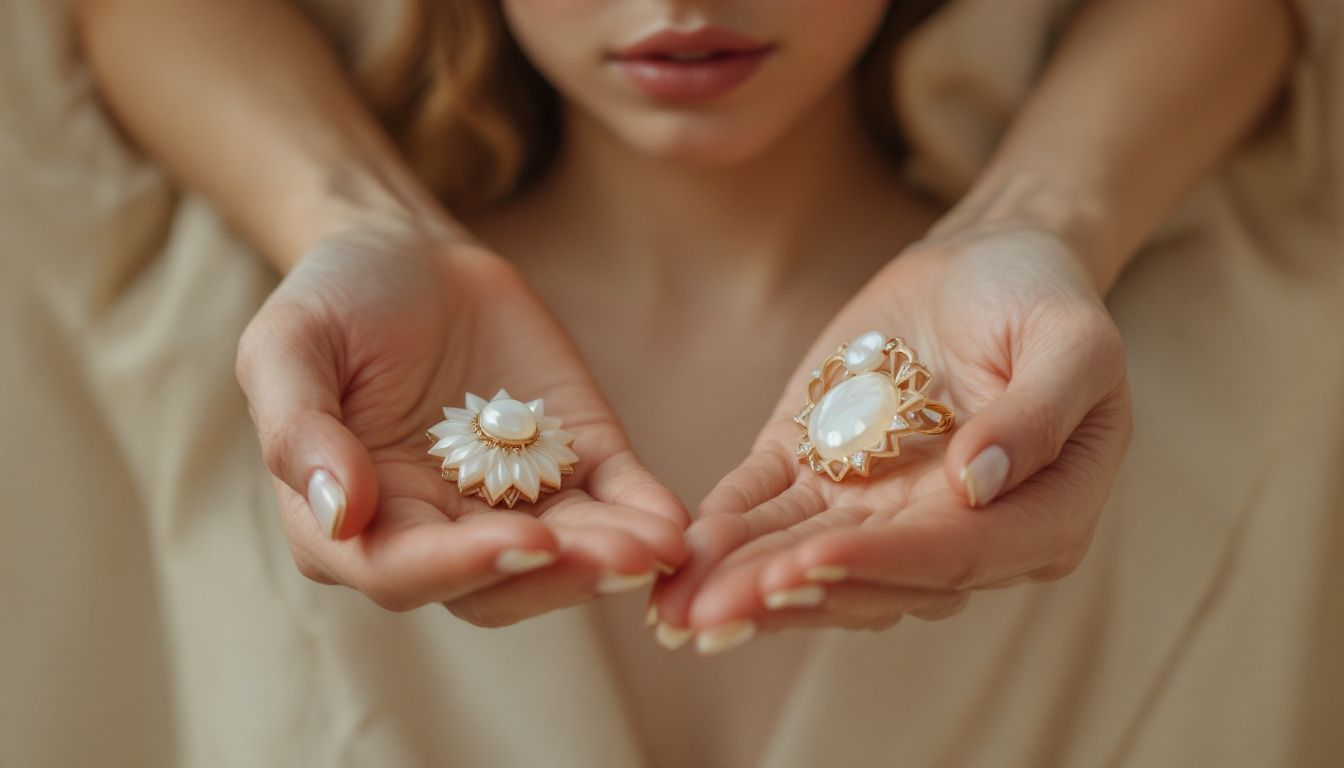
The future of sustainable jewelry is bright, marked by innovative technologies and shifting consumer preferences. As consumers increasingly prioritize sustainability, there will be a noticeable shift towards brands that demonstrate transparency and ethical practices. This combination of technological innovations and changing consumer values will lead to a more sustainable jewelry industry in the coming years.
Technological advances such as 3D printing and blockchain for transparency are anticipated to revolutionize jewelry production and sourcing. These innovations will not only enhance eco-friendly practices but also allow for more creative and efficient jewelry design.
Technological Advances
3D printing technology is revolutionizing jewelry design by minimizing waste and allowing for intricate designs to be created with near-zero material loss. This innovation enables brands to create unique pieces while reducing their environmental impact. Additionally, integrating robotic technologies and AI in jewelry design facilitates customization and enhances the efficiency of production processes.
Advancements in material science are also leading to the creation of more durable and eco-friendly jewelry pieces that resist tarnish and corrosion. These technological advances are setting the stage for a more sustainable and innovative jewelry industry.
Consumer Trends
Consumer values are shifting towards ethical practices, with over 80% of consumers considering the ethical practices of jewelry brands when making purchasing decisions. This growing emphasis on responsible consumerism indicates a move towards brands that prioritize sustainability and transparency.
Personalization driven by AI is becoming a trend, enabling brands to tailor designs to individual consumer preferences and reduce overproduction. These consumer trends towards sustainability and personalization are poised to significantly shape the future of the jewelry industry.
Summary
Sustainable jewelry brands are reshaping the industry by prioritizing eco-friendly practices and ethical sourcing. From the rise of sustainable jewelry brands to the importance of responsible sourcing and the benefits of lab-grown diamonds, this blog has explored various aspects of the sustainable jewelry movement. By choosing sustainable jewelry, consumers can support brands that promote environmental stewardship and social responsibility.
The future of sustainable jewelry is promising, with technological advances and shifting consumer preferences driving positive change. By making informed choices and supporting ethical brands, we can all contribute to a more sustainable and ethical jewelry industry. Let’s continue to embrace and elevate our eco-friendly style, knowing that our choices make a difference.
Frequently Asked Questions
Where do jewelers get their inventory?
Jewelers typically source their inventory from jewelry trade shows, manufacturers, designers, wholesalers, and even through custom in-house work. This variety ensures they can offer unique and diverse pieces to their customers!
Is Evry Jewels eco-friendly?
Yes, Evry Jewels is eco-friendly as they create their jewelry from recycled metals like brass and stainless steel, helping to reduce waste and promote sustainability. It's a wonderful way to enjoy beautiful pieces while being kind to the planet!
Is mejuri actually ethical?
Yes, Mejuri is considered ethical as it scores well in areas like environmental responsibility and animal welfare, showing a commitment to ethical practices. It's great to see companies prioritizing these values!
What are the benefits of choosing sustainable jewelry?
Choosing sustainable jewelry is a fantastic way to minimize your environmental impact while supporting ethical labor practices. You can feel good knowing that your beautiful pieces are made from recycled or responsibly sourced materials, making a positive difference in the world!
How can I identify a sustainable jewelry brand?
Identifying a sustainable jewelry brand is simple—look for certifications such as Responsible Jewellery Council, Fairmined, and Fairtrade. Engaging retailers about their sourcing practices will also reveal their commitment to sustainability.




Leave a comment